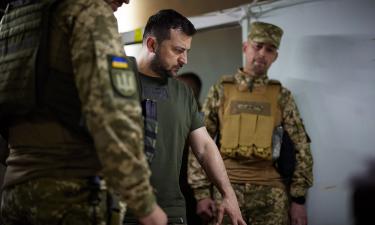Russia to sell submarines to Venezuela
Russia will trade at least 5 diesel submarines to Venezuela, a newspaper reported Thursday. This deal will anger Americans and strain U.S.-Russian relations.The business daily Kommersant said Venezuelan President Hugo Chavez was expected to sign the deal during a trip to Moscow starting June 29. It said that the initial contract would envisage the delivery of five Project 636 Kilo-class diesel submarines, and that Russia could also supply four state-of-the-art Project 677 Amur submarines later.
A spokesman for the state arms-trading monopoly, Rosoboronexport, refused to comment on the report.
Chavez is a fierce critic of the U.S. administration, and Washington has voiced strong concern about previous Russian deals to supply Venezuela with Kalashnikov rifles, Sukhoi fighter jets, M-17 helicopters and other weapons.
Chavez's planned visit comes days before President Vladimir Putin heads to the United States for talks with U.S. President George W. Bush in Kennebunkport, Maine, in early July.
U.S.-Russian relations already have plunged to what is broadly seen as the lowest point since the Cold War, strained by Moscow's anger over prospective U.S. missile defense in Europe and Washington's concerns about Putin's backsliding on democracy and strong-arming ex-Soviet neighbors.
A submarine deal that would modernize Venezuela's capability, allowing it to threaten the U.S. navy, could be expected to fuel U.S.-Russian tensions.
"The deal will certainly vex the United States," Pavel Felgenhauer, an independent military analyst, told The Associated Press. He said that while Russian diesel submarines' capability is inferior to the latest German and French designs, they can still pose a significant threat.
Russia earlier supplied five similar submarines to China under a contract estimated to be worth US$1.8 billion. Moscow has also angered the United States by selling weapons to Syria and Iran.
Subscribe to Pravda.Ru Telegram channel, Facebook, RSS!





